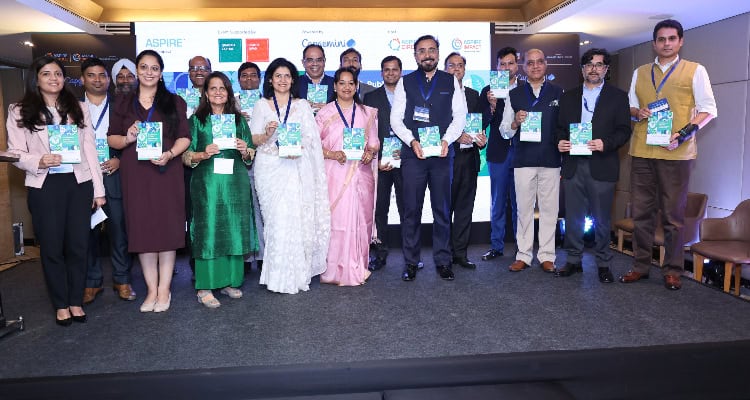Aspire impact launches ESG performance framework for India’s healthcare sector
The report introduces a new framework to assess ESG risks and opportunities in India’s healthcare sector
Aspire Impact, an ESG, sustainability, and impact ratings initiative, has launched a new sector-focused report titled Healthcare: An ESG Performance Framework. The publication was developed under the Capgemini-supported Impact Future Project, jointly led by Aspire Circle and Aspire Impact. The launch event took place in New Delhi and was supported by Quadria Capital and HealthQuad. Representatives from hospitals, pharma companies, ESG leadership, and healthcare investors including Fortis, Apollo, Quadria Capital, and Tata Capital Healthcare Fund participated in the event.
The framework introduces 80 sector-agnostic and 27 healthcare sector-specific indicators. It enables assessment of risks such as biomedical waste, antimicrobial resistance, and inequitable access to care. It also identifies opportunities in areas like green hospital infrastructure, digital health, and low-cost drug development. Unlike blended ESG scores, the framework presents separate ratings for risks and opportunities, allowing for sharper performance analysis in healthcare and pharmaceuticals.
Amit Bhatia, Founder of Aspire Impact and Aspire Circle, stated, “India’s $310 billion Healthcare & Pharma sector (2023), can lead the world not just in treating illnesses, but also in addressing social & environmental risks and opportunities. Our ESG framework, with two innovations—separate Risk & Opportunity ratings, and both sector-agnostic + sector-specific KPIs—measures and compares organisations vis-à-vis peers to inspire a more ethical, inclusive, and sustainable pharma and healthcare sector.”
Anurag Pratap, CSR Leader at Capgemini India, said, “India’s healthcare sector is growing rapidly, but growth without responsibility is a missed opportunity. This framework brings clarity to ESG efforts and enables institutions to align patient care with climate action, equitable access, and long-term resilience.”
India’s healthcare sector is projected to reach USD 596 billion by 2025. Despite its size, it represents just 6 per cent of the total market capitalisation of the top 1,000 NSE-listed companies. With over 7.5 million workers across hospitals, pharma, diagnostics, medtech, and biotech, ESG integration is seen as essential.
The report outlines critical ESG risks such as climate-related disruptions, supply chain fragility, workforce fatigue, and weak data security. It also highlights environmental concerns such as energy consumption, biomedical waste, and AMR. Social and governance-related risks include data governance issues and unequal healthcare access. These vulnerabilities were heightened during the COVID-19 pandemic and continue to affect service delivery.
The report points to ESG opportunities in renewable energy, circular supply chains, eco-packaging, and expanded healthcare access through government programmes like Ayushman Bharat and Jan Aushadhi. It introduces indicators such as WHO medicine prequalification, AMR response systems, and public scheme coverage to benchmark performance.
Rahul Agarwal, Partner at HealthQuad, said, “For investors and operators alike, this framework fills a critical gap. It moves us beyond broad sustainability claims to specific, measurable benchmarks. It empowers the entire ecosystem to act with greater confidence and accountability.”
The research was co-authored by a working group with representatives from Cipla, Biocon, Fortis, Zydus Lifesciences, Lupin, VisionSpring, Ujala Cygnus Hospitals, Tata Capital Healthcare Fund, Whiteoak Capital, and others. Key speakers at the launch included Sunil Thakur (Quadria Capital and HealthQuad), Visalakshi Chandramouli (Tata Capital Healthcare Fund), Dr Karan Thakur (Apollo Hospitals), Dheeraj Jain (Redcliffe Labs), and Dr Shikha Nehru Sharma (Nutriwel Health India).
- Advertisement -


